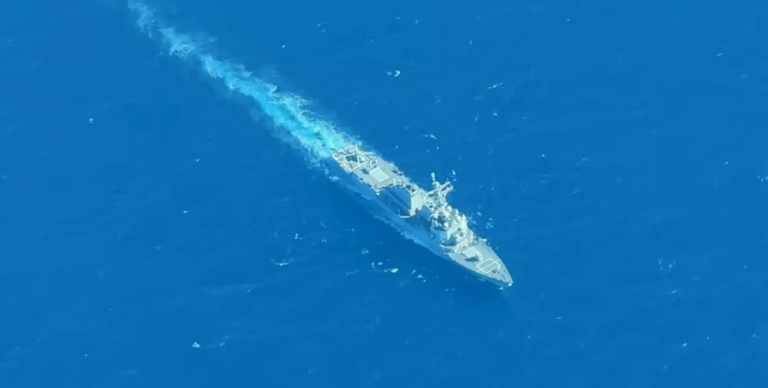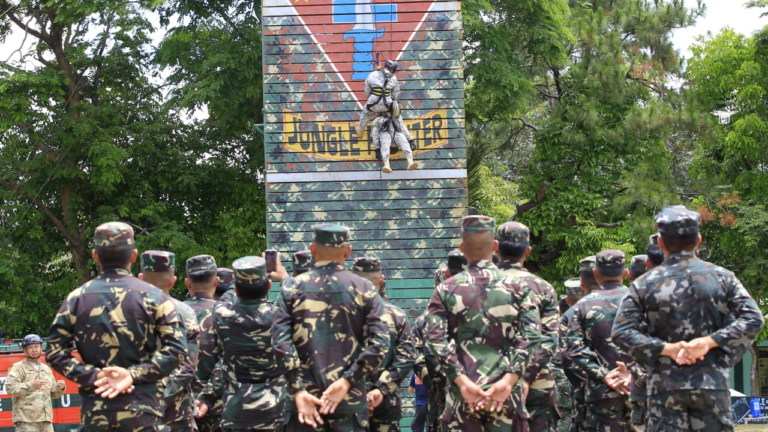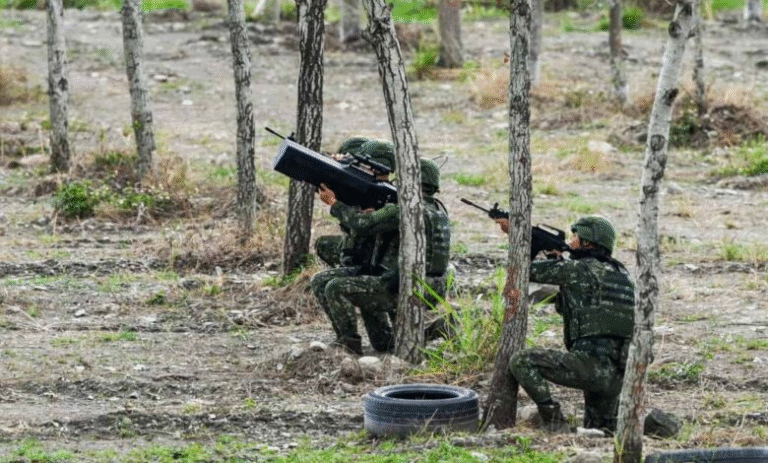
Taiwan has reportedly been “reassured and surprised” by the Pentagon’s intensified focus on deterring China, particularly concerning a potential seizure of Taiwan. This development is based on a classified internal guidance memo reportedly signed by US Defense Secretary Pete Hegseth in March 2025.
Here’s a breakdown of the key aspects:
- Prioritization of Taiwan: The memo allegedly reorients the US military strategy, prioritizing the deterrence of a Chinese takeover of Taiwan and the defense of the US homeland above other potential global contingencies.
- “Denial Defense” Strategy: The strategy reportedly involves increasing the deployment of submarines, bombers, unmanned naval vessels, and special forces in the Indo-Pacific region. It also focuses on bolstering the defenses of US military installations in the area and stockpiling supplies.
- Emphasis on Taiwan’s Defense Spending: The memo also reportedly includes a call for Taiwan to significantly increase its own defense budget.
- Potential Shift in Global Posture: To concentrate resources on the China/Taiwan scenario, the Pentagon might “assume risk” in other regions, potentially leading to increased pressure on allies in Europe, the Middle East, and East Asia to take on more responsibility for their own defense.
- Taiwan’s Reaction: News reports suggest that Taiwan is both reassured by the increased US focus on its security but also possibly surprised by the extent to which the Pentagon is prioritizing the scenario of a Chinese seizure of the island.
US Defense Strategy Towards Taiwan: Key Elements
The US approach to Taiwan is guided by a complex set of factors and policies:
- Taiwan Relations Act (TRA): This act, passed in 1979 after the US established diplomatic relations with the People’s Republic of China, outlines the unofficial relationship between the US and Taiwan. It commits the US to helping Taiwan maintain a sufficient self-defense capability and states that the US would consider any effort to determine the future of Taiwan by other than peaceful means a threat to the peace and security of the Western Pacific area and of grave concern 1 to the United States. 2
- “One China” Policy: The US acknowledges the PRC’s position that there is one China and that Taiwan is part of China, but it does not endorse the PRC’s sovereignty claim over Taiwan.
- Strategic Ambiguity: For a long time, the US has maintained a policy of “strategic ambiguity,” meaning it has not explicitly stated whether it would intervene militarily if China attacked Taiwan. This is designed to deter both China from attacking and Taiwan from provoking China towards independence.
- Increased Military Focus: In recent years, and seemingly reinforced by this reported memo, there’s been a growing emphasis on strengthening the US military posture in the Indo-Pacific to deter China. This includes increased military exercises, deployments, and cooperation with allies in the region.
- Arms Sales to Taiwan: The US continues to sell defensive weapons to Taiwan, a practice that is consistent with the Taiwan Relations Act but consistently protested by China.
- Six Assurances: These are a set of principles communicated by the Reagan administration to Taiwan in 1982, further clarifying US policy and reassuring Taiwan of continued US support.
Taiwan’s Security Guarantees from the US
It’s important to understand that the US does not have a formal treaty obligation to defend Taiwan, unlike its treaty allies like Japan and South Korea. The security relationship is primarily defined by the Taiwan Relations Act.
- No Automatic Guarantee: The TRA does not automatically guarantee US military intervention if Taiwan is attacked. The decision to intervene would be a political one made by the US government at the time.
- Commitment to Self-Defense: The US is committed to providing Taiwan with the means to defend itself.
- Statements of Support: While official policy remains strategic ambiguity, there have been instances, including statements by President Biden, suggesting a willingness to defend Taiwan. However, the official policy has not changed.
- Focus on Deterrence: The primary goal of the US strategy is to deter China from taking military action against Taiwan. The increased focus reported in the Pentagon memo aligns with this objective.
In conclusion, the reported Pentagon memo reflects a significant prioritization of the Taiwan scenario in US defense planning, which has likely reassured Taiwan of US attention to its security. However, the official security guarantee remains rooted in the Taiwan Relations Act, which does not constitute an explicit commitment to military intervention. The situation remains complex and sensitive, with the US balancing its desire to deter China with the need to manage relations with Beijing and uphold regional stability.





